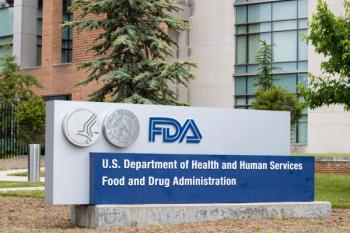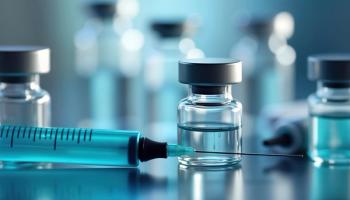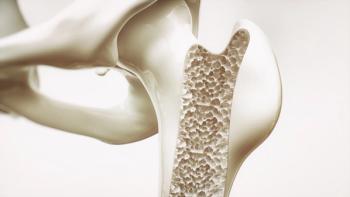
Biosimilars Are Safe for Pregnant Women: Study
Disease flareups occurred in seven women who stopped biosimilar treatment and two who continued without stopping, according to findings published in the journal Obstetric Medicine.
Concerned about potential neonatal immune suppression, the American College of Rheumatology recommends against using biological disease modifying anti-rheumatic drugs (bDMARDs) during pregnancy, but in a retrospective
Scott, the lead author, and her colleagues at University College London Hospital looked at tumor necrosis factor inhibitor (TNFi) biosimilar use in 18 pregnant women at a tertiary medical center. They observed no harmful outcomes for infants from biosimilar therapy use by their mothers and said disease flareups caused by biosimilar cessation are the bigger concern.
“Not only should women on biosimilar therapies feel confident to conceive while using these drugs, but it would appear prudent that continuation of biosimilar TNFi therapy throughout pregnancy should be the norm rather than the exception to prevent later disease flares,” Scott wrote in the
This was the first study of biosimilar bDMARDs in pregnant women and was undertaken because there are minute differences between biosimilars and their reference products whose significance needs to be elucidated, Scott wrote. The findings were consistent with outcomes reported in studies of TNFi reference products in pregnant women.
Women in Scott’s study underwent treatment with biosimilars of Humira (adalimumab), Enbrel (etanercept), and Remicade (infliximab). Humira biosimilars launch in the U.S. market in 2023 and Enbrel biosimilars are expected in 2029. Nine of the women enrolled in the study had inflammatory rheumatic disease and six had inflammatory bowel disease.
The study evaluated outcomes for women who had been on bDMARDs for an average of five years prior to conception. Two women discontinued biosimilar use in the first trimester, eight in second, and one in the third. Disease flareups occurred in seven women who stopped biosimilar treatment and two who continued without stopping. Six women restarted biosimilar therapy as a result of flareups.
Scott wrote that all pregnancies resulted in live births. She and her researchers identified a significant risk for earlier delivery in women who stopped treatment with biosimilars (38 weeks and 5 days vs 39 weeks and 5 days).
However, no newborns required admission to the neonatal unit and no congenital abnormalities were observed. One child was born with “floppy larynx,” which is loose tissue that impairs breathing and feeding and is correctable with surgery. One birth was preterm (36 weeks and 6 days). The average birth weight was 7.1 lbs.
Scott said 16 women were breastfeeding at discharge and 13 were on biosimilars at three months postpartum.
“Within our cohort, 64% of those women who stopped their biosimilar therapy had a flare in their inflammatory disease in late pregnancy or in the postpartum period….
“Our data suggest that the risk of inflammatory disease flare persists even if the biological therapy is continued into the middle of pregnancy before being stopped.”
Newsletter
Get the latest industry news, event updates, and more from Managed healthcare Executive.























